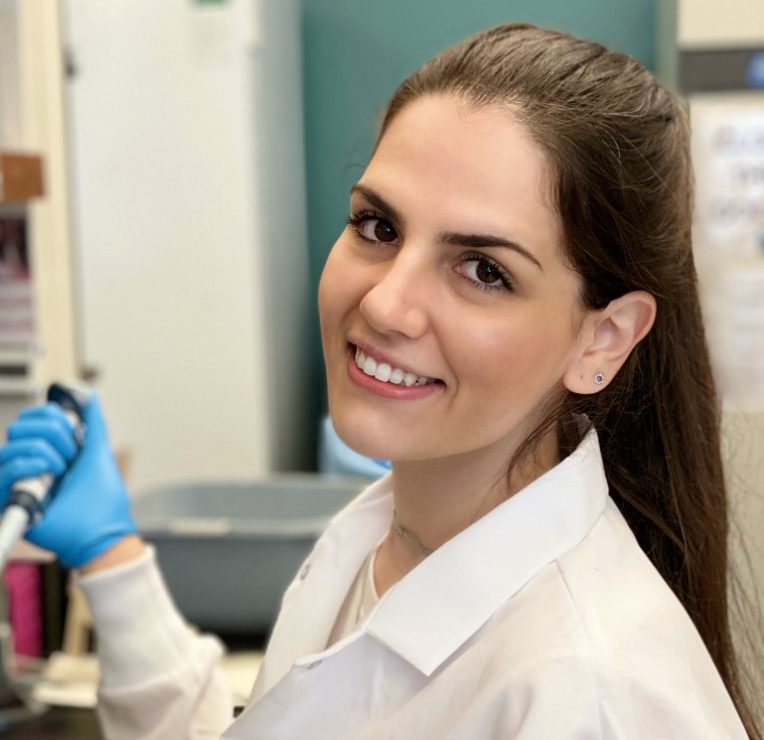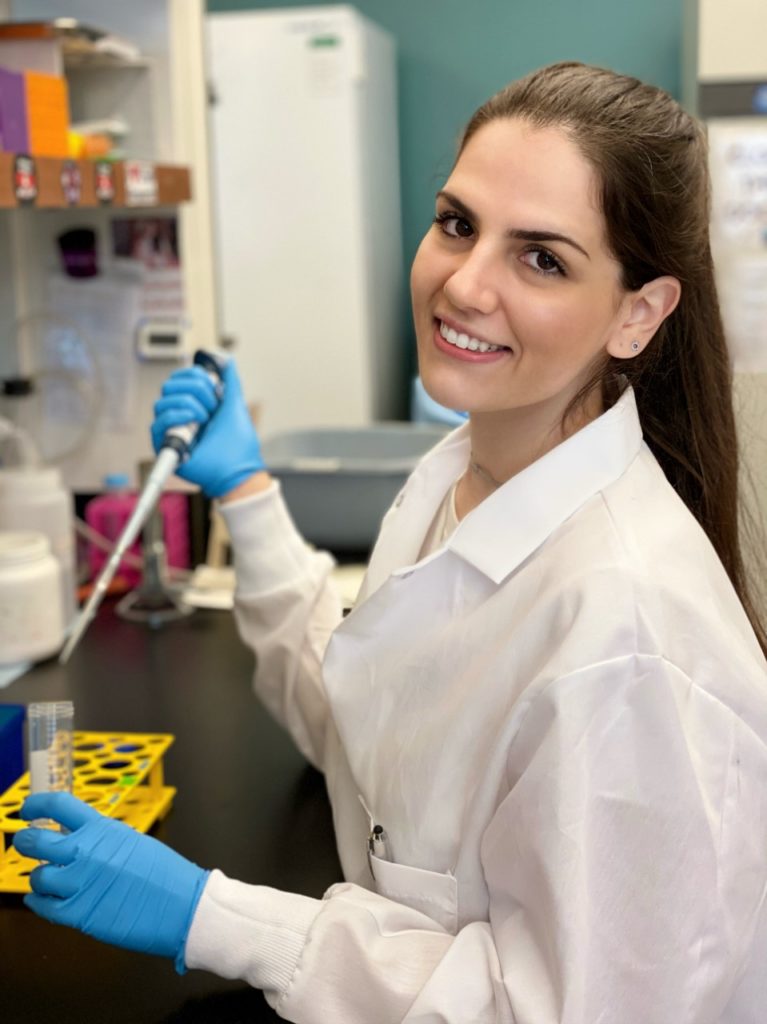Trainee Spotlight: Mayara Bertolini

Mayara Bertolini is a third year Ph.D. trainee in the laboratory of Dr. Roberto Docampo. She has recently been awarded a predoctoral fellowship from the American Heart Association.
Please tell us a little about yourself.
I am from São Paulo, Brazil and I have always been a very curious person that likes to discover unique things. Over time, I realized that biology was one of my favorite subjects, especially when it came to diseases. I decided to major in Biomedical Sciences at the Faculdade Anhanguera de Santa Bárbara D’Oeste (São Paulo, Brazil). After my graduation, I performed voluntary research training at the Laboratory of Bioenergetics of the Department of Clinical Pathology (School of Medical Sciences) of the State University of Campinas (Campinas, São Paulo, Brazil) under the supervision of Dr. Anibal Vercesi. Thereafter, I joined the Master’s program to continue my training as a scientist. There I met Dr. Roberto Docampo, who has collaborated with Dr. Vercesi for many years. Since then, I joined his research group, where Dr. Miguel Angel Chiurillo and Dr. Noelia Lander were also members of a very productive team, which has stimulated my fascination for research in parasitology. During my master’s, I was awarded a fellowship from the São Paulo Research Foundation (FAPESP) to perform a functional study of the regulatory subunits Mitochondrial Ca2+ Uptake 1 (MICU1) and 2 (MICU2) involved in calcium signaling in the parasite that causes Chagas disease, Trypanosoma cruzi. My master’s project elucidated some questions and opened doors to interesting new topics, which our group is very excited to explain.
Why did you choose UGA?
I wanted to continue working with the same model to improve my scientific thinking and to complete my laboratory training, and the Center for Tropical and Emerging Global Diseases (CTEGD) at UGA has a wide range of researchers working with trypanosomes. Pursuing my Ph.D. at UGA is an extraordinary opportunity because of CTEGD’s unique infrastructure, which consists of extremely qualified professionals and resources that facilitate the development of research projects.
What is your research focus?
T. cruzi is one of the least well understood neglected tropical disease agents and current treatments remain inadequate partly due to a general lack of knowledge of this parasite’s basic biology. We are particularly interested in establishing the role and interaction between mitochondrial proteins involved in Ca2+ uptake in this organelle. Understanding the mechanisms of adaptation and survival of the parasite upon environmental challenges, as changes in concentration of free Ca2+, will lead to important insights into the biology of this parasite and the evolution of Ca2+ signaling in eukaryotic cells. Considering that disruption of Ca2+ homeostasis by toxic agents is related to the loss of cell viability, the identification of the possible differences in mitochondrial Ca2+ transport between these parasites and the host cells could be useful for the development of new chemotherapeutic agents against Chagas disease. The purpose of the AHA predoctoral fellowship is to enhance the training of students who intend to pursue careers as scientists aimed at improving global health and wellbeing, and I feel like I can contribute to this mission.
What are your future professional plans?
After my graduation from UGA, I hope to continue for a postdoctoral research position. In the future, I would like to establish a research group in Brazil using trypanosomatids as biological models for studying the structure and function of proteins.
Any advice for a student interested in this field?
Don’t be afraid to try new things and learn from it.
Support trainees like Mayara by giving today to the Center for Tropical & Emerging Global Diseases.
[button size=’large’ style=” text=’Give Now’ icon=” icon_color=’BA0C2F’ link=’https://ctegd.uga.edu/give/’ target=’_self’ color=” hover_color=” border_color=” hover_border_color=” background_color=” hover_background_color=” font_style=” font_weight=” text_align=’center’ margin=”]

